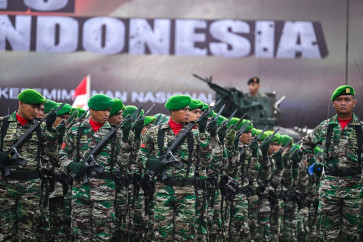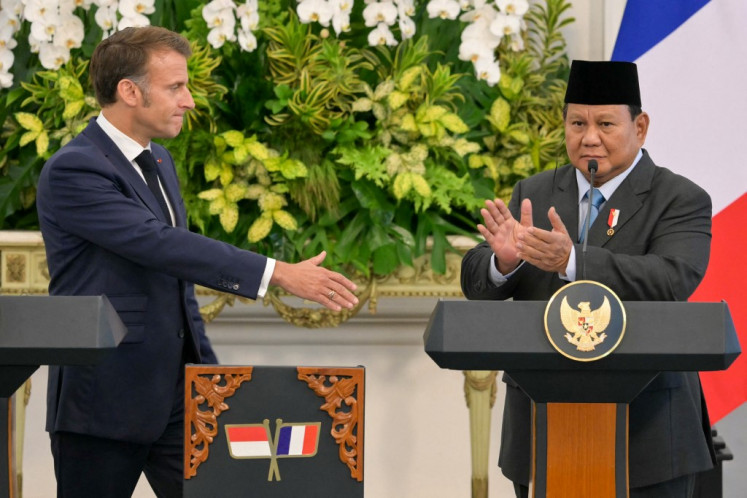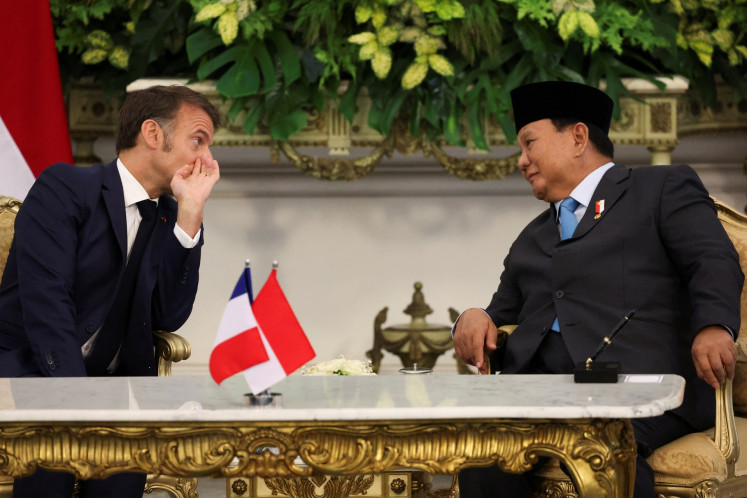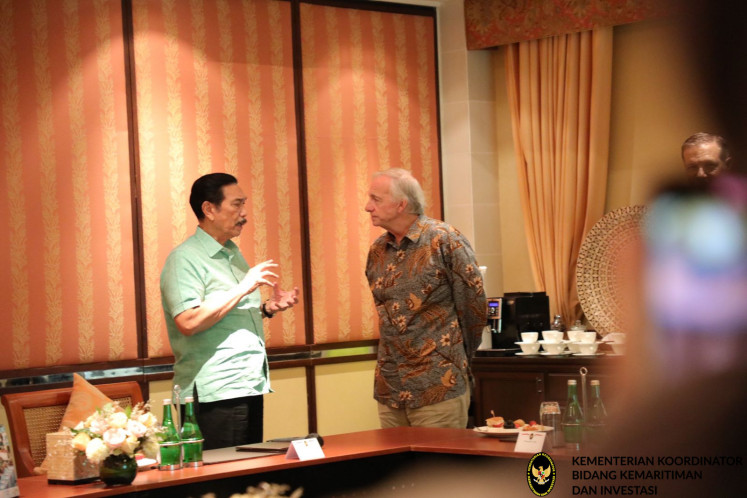Twenties: 20 Indonesian rituals for Ramadan and Idul Fitri
From mudik (going home for a while) to megibung (eating together), these are 20 unique traditions celebrating Ramadan and Idul Fitri in Indonesia.
Change text size
Gift Premium Articles
to Anyone
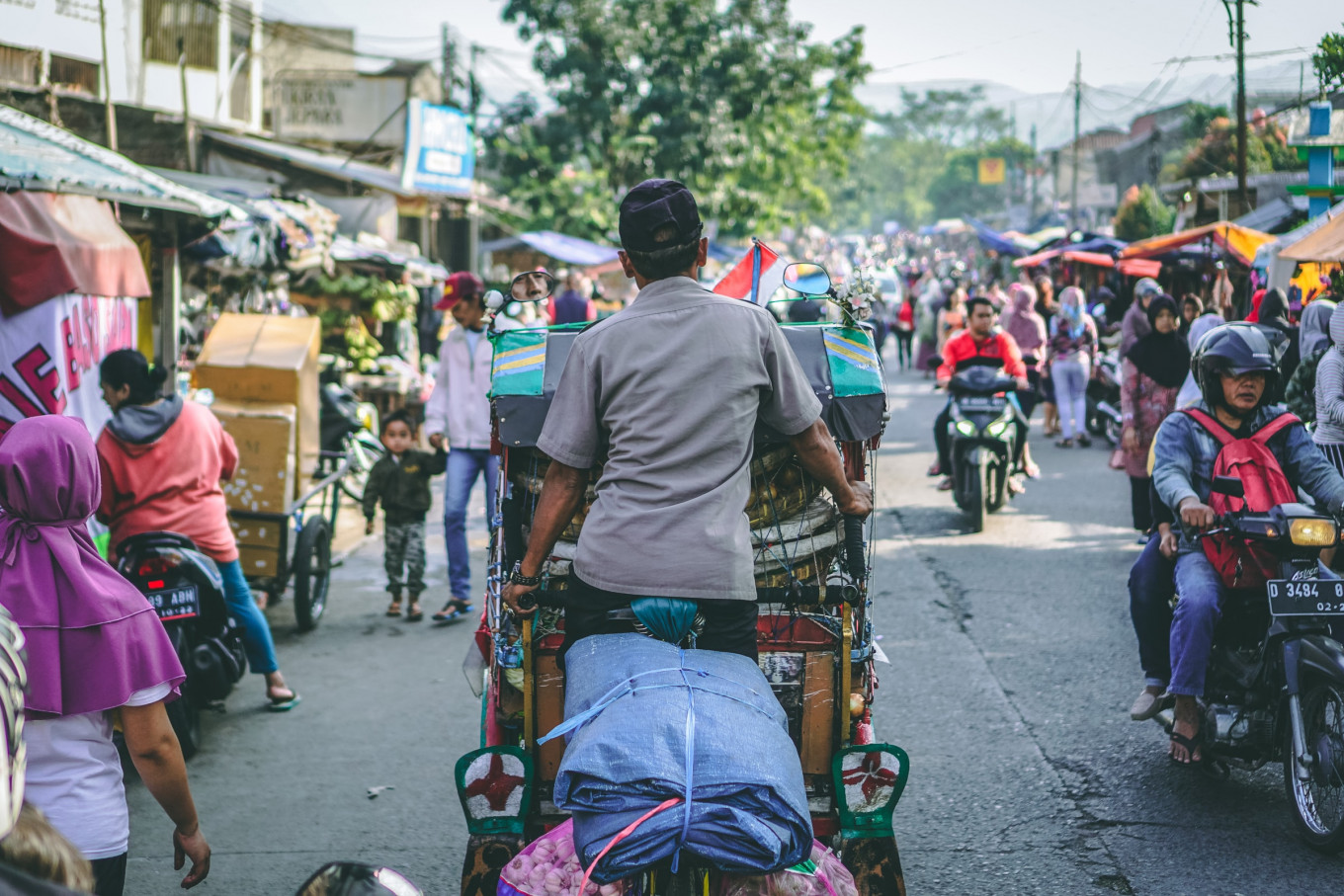
T
wenties' is a new column in which we give our top 20 list of anything and everything of interest, from food and history to pop culture and lifestyle -- and more.
Ramadan and Idul Fitri are widely celebrated by Indonesian Muslims. As the country with the largest Muslim population in the world, several regions in Indonesia have unique traditions in celebrating the holy month.
1. Mudik
Mudik, short for mulih dilik, translated as “going home for a while”, is an annual cultural tradition before the celebration of religious holidays, especially Idul Fitri. Some people go on the day of the holiday or the day after.
Mudik is used as an opportunity to strengthen relationships with relatives and family members. People who live in different cities or urban areas visit the hometowns where they were born or go to the homes of their parents. For those who live apart from their families, it is also a way to remember their origins.
2. Nyadran
Nyadran is an important tradition for people in Central Java. Magelang, Temanggung and Kendal are just some of the cities where it is commonly practiced. The tradition serves as a way of honoring ancestors and of expressing gratitude to the Creator. It consists of a series of activities, including cleaning family graves, cultural carnival and eating together, one month before fasting begins.
The unique thing about this tradition is the communal meal or kenduri, where dishes are cooked using local crops and livestock and served on banana leaves. People view Nyadran practices as a form of self-cleansing before the holy month and dedication to family members who have passed by praying and cleaning their graves.
3. Kirab Budaya Sadranan
Kirab Budaya Sadranan is a cultural carnival held annually as a part of Nyadran tradition. There is a parade, in which people carry huge cones made of local farmers' crops (also called gunungan), accompanied by traditional art performances and sometimes drum bands.
The gunungan of earth produce are symbols of gratitude for the abundant fortune the village has obtained. After the cones are paraded around the village or kirab, the villagers move on to the next event, the kenduri, a tradition of bringing food and fruit to eat together in the middle of the village.
4. Padusan
The Padusan tradition has existed in Boyolali, Central Java, since the time of Wali Songo, who are the saints of Islam in Indonesia, especially on the island of Java. It has been carried out for generations as a ritual to cleanse oneself before welcoming Ramadan. Originally, it involved approaching a spring that was believed by the locals to bring blessings and fortune, then bathing in it.
Unlike other bathing traditions, Padusan must be performed alone, so that one can reflect on past mistakes. By doing this, the Boyolali people believe they begin Ramadan month with clean intention and soul.
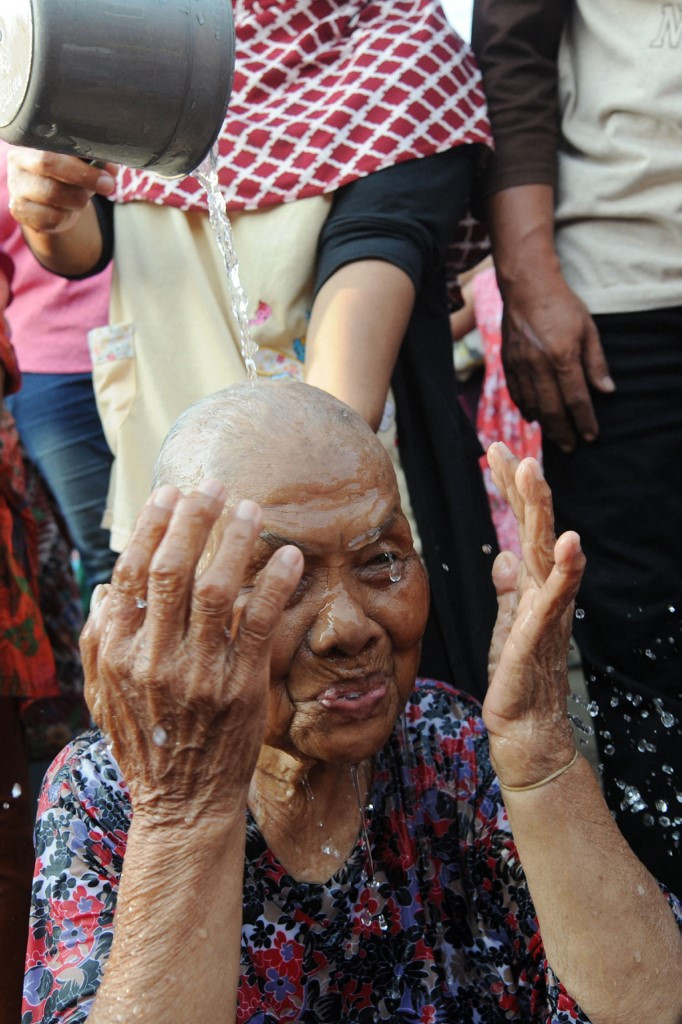
5. Ngeruwah
In Banyuwangi, East Java, it is traditional to visit the graves of family members before the month of Ramadan. Hundreds of locals gather for Ngruwah tradition, or prayer together, at public cemeteries.
Annually, local religious leaders pray for the deceased families and ancestors, and descendants share a meal, in the area near the graves, which they also clean and maintain. This tradition also includes donations for orphans. These activities are meant to create unity and harmony among people.
6. Apeman
Apeman is an annual tradition widespread in the Special Region of Yogyakarta, performed before Ramadan begins, as an expression of gratitude to the Almighty. Since Yogyakarta is known as a world-class tourist destination, apeman is held not only in rural areas but also on Jl. Malioboro and Sosrowijayan to attract tourists.
In this festivity, hundreds of apem cakes are made by members of the Kraton Ngayogyakarta Hadiningrat family. The process starts with ngebluk jeladren, or making dough, followed by ngapem or cooking the apem. The apeman tradition is led directly by the Sultan's consort and is followed by other women in the royal families.
7. Munggahan
Munggahan is a word from the Sundanese language, meaning "to go to a higher place", in the sense that Muslims will move on from the month Shaban to Ramadan, a great month full of blessings. Thus, Munggahan usually occurs at the end of Shaban, or a few days before the beginning of Ramadan.
This tradition, which has existed since the arrival of Islamic teachings in Sunda, comprises botram (eating together), making amends, visiting family and relatives' homes and cleaning places of worship and family graves. Munggahan serves as a form of gratitude to God, and as a performance of cleansing, before entering the holy month of Ramadan.
8. Punggahan
Similar to munggahan, punggahan also means “to ascend”, conveying that this tradition is expected to elevate the level of spirituality when Muslims fast and pray during Ramadan. Although it was first introduced in Java, this tradition is also commonly found in North Sumatra to welcome the holy month.
Punggahan tradition in North Sumatra varies from region to region. The people of North Labuhanbatu, for instance, usually bring food and eat it together in the mosque. Meanwhile, punggahan in Batubara is celebrated by butchering buffalo or oxen 32 days before Ramadan begins.
9. Bakar Batu
Papuan tribes from the central mountainous region of Papua practise bakar batu or “burning stones”, a traditional cooking activity. It is usually held every time a special occasion arises, including Ramadan.
Burning stones was traditionally a pork feast, in ancient history. However, to preserve this stone-burning tradition, the Papuan Muslims have substituted it with chicken or halal meats according to Islam. The tradition symbolizes religious tolerance and the diversity of Indonesian culture.
10. Nyorog
In the Betawi tradition of Nyorog, people give presents to their relatives before the fasting month and before Idul Fitri. Betawi people in Jakarta carry out this tradition by visiting their older siblings, relatives and elders in their neighborhoods, and giving them gifts containing basic necessities and Betawi specialty food.
Nyorog presents were initially presented in a pandanus leaf woven basket. Today, though, Betawi people use sets of stacked containers or lunch boxes to share the gifts. Betawi specialty food shared during the Nyorog tradition includes sayur gabus pucung, milkfish and buffalo meat-based dishes.
11. Meugang
Meugang is one of the annual traditions carried out by the people of the Special Region of Aceh before beginning the month of fasting, Idul Fitri and Idul Adha. The tradition dates back to the days when the Aceh Kingdom still stood, which was around 1607 to 1636 AD.
Meugang involves cooking a large amount of meat and eating it with family, relatives and orphans. The mosques often distribute cooked meat around the neighborhoods so that everyone can share joy and togetherness.
12. Malamang
The Malamang tradition is commonly carried out by the women of West Sumatra to welcome Ramadan month. This tradition has been passed down for generations. Malamang means “cooking lamang”, a dish of white glutinous rice and coconut milk steamed inside young bamboo sticks.
The Malamang tradition is still very much alive in the Pariaman and Agam areas and is held not only when Ramadan approaches, but also at various major celebrations and family events. The purpose is to gather with relatives and strengthen family connections.
13. Dugderan
Dugderan has evolved beyond a tradition celebrated by Muslims in Semarang before Ramadan. It is now recognized as an annual festival unique to the city. Festival attendees represent a wide range of societal levels in Semarang. The event celebrates the ethnic, cultural, culinary and artistic diversity of the city.
The term dugderan combines the word dug, which refers to the sound of a drum, and deran, which denotes the sound of firecrackers, since both sounds accompany the carnival during the celebration. The carnival, which starts from the City Hall Office yard and continues to the Great Mosque of Semarang, ends with the reading of Suhuf Halaqah (the announcement of the start of Ramadan) and the beating of the drum.
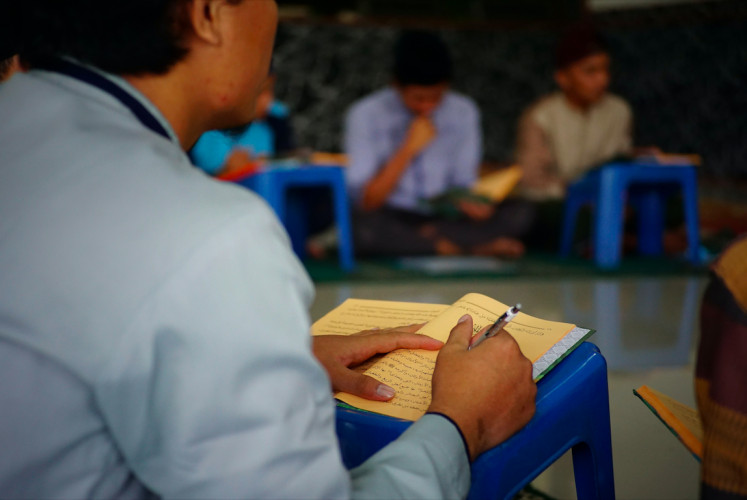
14. Pacu Jalur
Pacu jalur is one of the unique traditions held by people in Kuantan Singingi regency, Riau, before the month of Ramadan, with a celebration similar to pesta rakyat (people’s great party). This tradition takes the form of a rowing race with boats made of tree woods. The term pacu jalur derives from the word jalur, which means boat in the local language.
The tradition takes place every year on the Batang Kuantan River, which has been used as a shipping route since the 17th century. The competition is held as entertainment after all the daily routines and works the locals do before Ramadan month starts.
15. Balimau
Balimau is a tradition of bathing using lime among the Muslim society in Minangkabau, West Sumatra. This ritual occurs a couple of days before Ramadan month and in areas that are near rivers or have specific baths. This tradition is believed to have been around for centuries to cleanse oneself physically and mentally before the holy month of Ramadan.
In the past, not everyone could take a bath, either due to a lack of soap, a lack of water or even because they were too busy working. In some parts of Minangkabau, lime was used as a substitute for soap as it could dissolve oil or sweat. Balimau tradition is popular in Lubuk Minturun area in Padang. In the provinces of Lampung and Riau, a ceremony with the same name is also practiced.
16. Megengan
The name Megengan means "holding back", which is interpreted by the people of East Java to mean holding back one's lust in preparation for Ramadan month. This tradition itself is generally marked by prayers held in mosques and prayer rooms and attended by residents around them. In Megengan, an ustaz (Islamic teacher) will lead a prayer to ask for safety and strength in fasting.
During Megengan, residents who attend will bring rice which is often called sego blessing -- it contains vegetables, side dishes and cakes typical of East Java. After the reading of the prayer, everyone present can take anyone else's blessing and eat it. This tradition is also believed to instill good values such as bringing sustenance, instilling sincerity and fostering togetherness among fellow Muslims.
17. Ziarah Kubro
The tradition of Ziarah Kubro (pilgrimage to the graves) is an annual event for the Palembang Muslims who live along the Musi River, especially for the Arabs who live nearby. This pilgrimage involves visiting the graves of the scholars and founders of the Palembang Sultanate. Although carried out en masse, this tradition is only reserved for men.
Pilgrims wearing all-white clothes march to a number of pilgrimage points in Palembang. Lasting for three days, it is often joined by pilgrims from other cities such as Aceh, Jambi, Jakarta and the cities of East Java. During this time, pilgrims also have the opportunity to make connections with fellow pilgrims and visit their relatives.
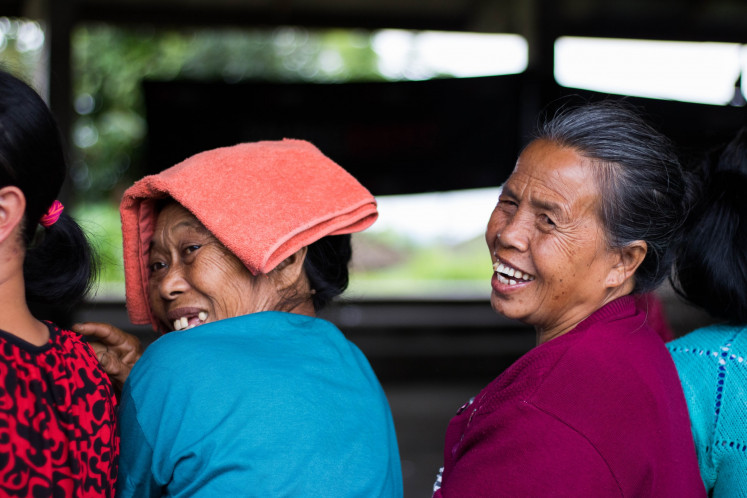
18. Kirab Dandangan
Kirab Dandangan is a carnival celebrated in Kudus, Central Java, to mark the beginning of Ramadan. "Dandangan" or "Dhandhangan" refers to the sound of the mosque drum beaten when the holy month begins.
On this day, the villages in Kudus showcase their exquisite crafts by parading them from Jl. Kiai Telingsing to the Menara Kudus Mosque. The closing event of the celebration is a historical theatrical performance of the Dandangan celebration, filled by the locals.
19. Megibung
Similar gatherings to welcome Ramadan month are also common in the Karangasem area of Bali. As Ramadan approaches, Muslims in Karangasem often eat together and stay in touch. This Ramadan tradition is known as the megibung.
Megibung is not exclusive to the Hindus of Karangasem and Lombok. Muslims in Karangasem, as well as those in Kecicang, Saren Jawa and Tohpati, also hold megibung tradition. The key difference is that Muslims use halal food instead of pork, as in Hindu tradition. Megibung is usually associated with events such as a wedding, circumcision, Idul Fitri, Maulud Nabi (the birth of Prophet Muhammad) or other Islamic-related events.
20. Batahlil
The people of Ternate, North Maluku, have a variety of Islamic traditions inherited from their ancestors that are still maintained until today. Among them is the batahlil tradition of welcoming Ramadan. Batahlil derives from the word “tahlil” or “words of praise to Allah” that are commonly chanted repeatedly during Islamic rituals, especially when it comes to death rituals.
The batahlil tradition begins with a visit to the graves of parents or relatives who have died. Practitioners sprinkle small pieces of pandan leaves on the tomb, pour a bottle of water on it and pray. After the batahlil ritual, which usually lasts for an hour, the host who organized the ritual gives yellow rice and cakes to take home.
ohmg


